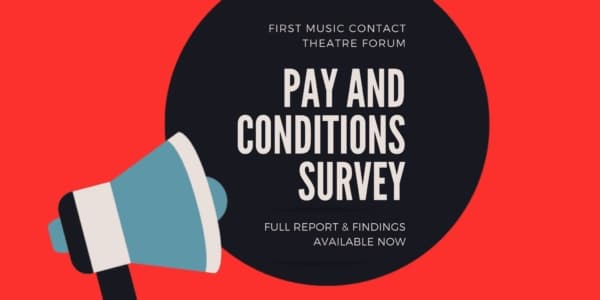COVID-19
Key issues for performing arts organisations
We know that arts organisations have been working with all of their stakeholders including artists and companies, community groups, employees, audiences, funders and their boards of directors to minimise the impact of cancellations and closures resulting from measures introduced to stop the spread of the coronavirus (COVID-19). This bulletin follows-up on Monday’s one and aims to give our organisation members an overview of the relevant information and supports to get them through this time of crisis. It should be read in conjunction with the notice detailing the support available to employees, arts workers and artists.
No work for artists
The closure of theatres and other venues added to uncertainty around festivals happening in the next few months dramatically reduced the number of work opportunities for artists. This sudden stop has resulted in job losses across the sector meaning a loss of income for performing artists, writers, makers, designers, producers, and technicians. We know that most sole trader, freelance and independent workers in the performing arts operate on the narrowest of margins in a sector known for its precarity, low pay and poor conditions. We support the call to prioritise paying artists so that they have some chance of making work for our stages in the years after this crisis.
In these months, it is important for everyone to document loss of work and income. We would encourage all artist and freelance members to record their own losses for discussions with Revenue and to complete income loss surveys such as the NCFA and Arts Council ones to enable those organisations to advocate and secure the resources needed for the sector’s recovery.
Loss of box office income threatening sector’s viability
While continued Arts Council support for venues and artists is welcome, the financial sustainability of many theatre and other cultural and creative companies, including arts centres and festivals, is severely undermined by the loss of box office income. This threatens the viability of the national built arts infrastructure and those organisations may require a range of additional supports to restore programmes, audiences and income.
Arts Council measures to help artists and arts organisations
The Arts Council responded quickly to the cancellation and postponement of work due to the restrictions on public gatherings with a commitment that it would honour all existing funding commitments with organisations and artists able to draw down 90% of their funding commitment with immediate effect. In turn, the Arts Council has asked organisations to prioritise their own payments to artists.The Council also assured organisations/individuals that all projected details and figures provided to the Arts Council in relation to programmes, income, audiences for 2020, will be considered in this context and that there will be no financial penalties for organisations/individuals that are unable to deliver key activities/key services arising from the impact of the COVID-19 virus. An announcement about closing dates for impending schemes is expected shortly.We know from our members that they are negotiating cancellations with companies and artists while also looking to maintain good working relations into the future. If you have specific queries about the cancellation, postponement or rescheduling of events or about payments to artists and companies, guarantees and touring award payments, mail them to us in advance of next Tuesday’s Members’ Meeting and we’ll get try to answer your query.
Governance, Finance & HR issues for arts organisations
We now expect interruption to the ‘normal’ activities of arts centres, theatres and venues to continue for weeks to come meaning that they will forego box office income.
Managing employees
Every organisation is in the process of preparing management accounts, forecasting their monthly position for the rest of the year and getting financial advice from their auditor or accountant.
You’ll have already secured any income, including grants, due to you and reduced your expenditure where possible. Working with your board, you need to decide how best to manage your payroll costs keeping in mind that the goodwill of employees is likely to play a big part in the recovery of the organisation. So in consultation with your board and employees, you need to consider all your options including pay cuts, part-time work, lay-offs or whether to avail of recently announced Temporary Covid-19 Wage Subsidy Scheme.
Temporary closure
If your organisation is closed but you can facilitate home working, then employees would continue to work and be paid as normal. This probably describes the current situation for some arts organisations.
Temporary Lay Off
If the employees’ roles cannot be done from home, then you may need to consider placing employees on a period of temporary lay-off. They should receive as much notice as possible and be issued with the Revenue Form RP9.
As an alternative to lay-off, you might offer employees the option to take the period as annual leave, subject to agreement. Or you could agree to continue to pay the employee wholly or in part subject to the employee working back those hours when they return to work. Obviously the longer the closure, the more difficult it is to work back a large number of hours.
Short Time Working
Short time Work Support is available under Jobseeker’s Benefit and is an income support payment for employees who have been temporarily placed on a shorter working week. Employees must work 3 days per week or less to qualify, having previously been employed on a full time basis.
Temporary COVID-19 Wage Subsidy Scheme
On Tuesday 24 March 2020, the Irish government announced as part of its National COVID-19 Income Support Scheme the introduction of a Temporary Covid-19 Wage Subsidy Scheme to provide financial support to workers and companies affected by this crisis. The scheme will run for 12 weeks and replaces the previously announced COVID-19 Employer Refund Scheme. The new scheme subsidises wages to preserve the important link between employers and with their employees to mitigate the adverse business impact on employees of COVID-19.
It is a welcome development for employers seeking to support their workforce through the crisis period with a refund to employers up to a maximum of €410 per each qualifying employee. Arts organisations should seek advice from their auditor or an accountant on whether they meet the qualifying criteria, especially the one which requires them to be unable to pay normal wages:
- self-declare to Revenue that they have experienced significant negative economic disruption due to COVID-19,
- demonstrate a minimum of 25% decline in turnover or customer orders being received,
- be unable to pay normal wages and other outgoings, and
- retain their employees on the payroll.
We will seek further guidance from Revenue on how these qualifying criteria might be applied to arts organisations in receipt of grant income but unable to generate earned or box office income in the short to medium term. Meanwhile, we would encourage all arts organisations to complete the Covid-19: Temporary Wage Subsidy Self-Declaration by logging on to ROS.
Other Income Support Measures
In addition to this Temporary Covid-19 Wage Subsidy Scheme other income support measures relevant to arts workers include the following:
Self-Employed individuals are eligible for the COVID-19 Pandemic Unemployment Payment of €350 directly from DEASP rather than receiving payments from Revenue.
Where employees who have been laid off, they can avail of an enhanced emergency COVID-19 Pandemic Unemployment payment by making an application direct to the Department of Employment Affairs and Social Protection (DEASP). This payment is increased from €203 to €350 per week and people claiming under the existing scheme will receive the €350 payment.
Other Measures
The Government announcement referenced an agreement with local authorities that they should defer rates payments due from the most immediately affected businesses, primarily in the retail, hospitality, leisure and childcare sectors, until the end of May.
Staying in touch with audiences
Ticket refund facilities such as Ticketsolve’s Ticket Exchange Tool, offer customers exchange or refund choices but also enable them to practically demonstrate their support with a donation.Online contentMajor arts organisations such as the Abbey Theatre and Irish National Opera have moved quickly to make cultural content available online. And today, on World Theatre Day, many theatre companies, art venues and theatres will share their work online using the hashtags #IrishTheatreDay and #WorldTheatreDay.Remember your organisation is ideally positioned to innovate and provide cultural content on-line while people are living with physical restrictions but not imagination ones. And remember your organisation could also play a key role in being the place from which to start rebuilding the community.
Next Members’ Meeting – Tuesday 31 March
We’ll convene our next emergency Members’ Meeting online on Tuesday 31 March 2020, 11am-12noon. Mail us your questions in advance and we’ll look to experts for their advice. We’ll mail you the links on Monday to join Tuesday’s meeting and publish them on our website too.

